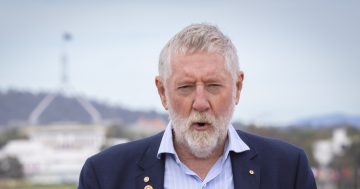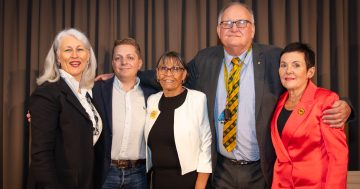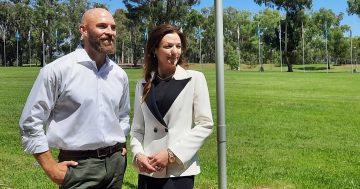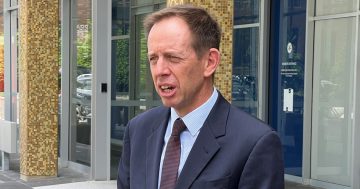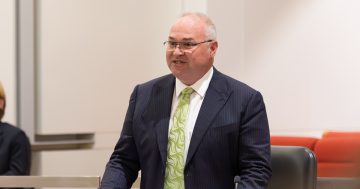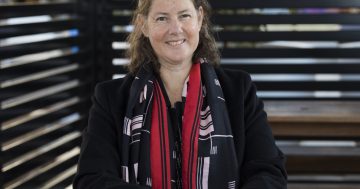
It’s 30 years since the first ACT Legislative Assembly election. Has it all been worthwhile? File photo.
If you think politics these days is a wild affair, you weren’t in Canberra 30 years ago to the day when the ALP and Liberal Party slugged it out in the polls with the Sun-Ripened Warm Tomato Party, the Surprise Party and the Party! Party! Party! (party), and even the Abolish Self Government Party (which went on to join the new Assembly it had never wanted in the first place). There were three different governments in a matter of years and references abounded to Italian parliaments.
So 30 years on, has it all been worth it? Is Canberra better off with self-government?
Ellnor Grassby, who was elected for the ALP in the first Assembly, says bluntly that there was no choice. “They didn’t want us up on the hill, we were costing them too much money and the Federal MPs were determined to get rid of us. They just said to us ‘that’s how much money you’ve got, don’t come back asking for more’. It was sink or swim.”
Grassby credits chief ministers Rosemary Follett and later Kate Carnell with believing that the ACT could develop a functional economy. “People used to say that we couldn’t afford courts and the like, it was all going to be too hard, and self-government was a waste of time. You had to battle against that by building the economy.”
She says the first Assembly could be a fiery place, necessitating almost constant negotiation with the likes of Bernard Collaery who was deputy chief minister at the time and Dennis Stevenson from Abolish Self government, famed for sleeping in his office (Grassby once called him “Mr Hitler” in the chamber and got it into Hansard).
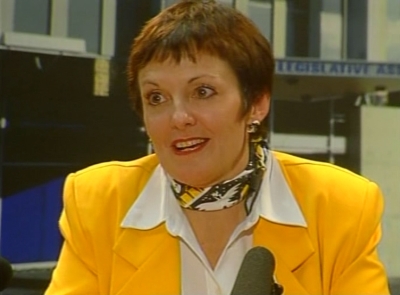
Former chief minister Kate Carnell was elected to the second Legislative Assembly. File photo.
Kate Carnell agrees it was tough to shift the Territory’s own mindset when there was so little Federal support or resourcing, pre GST allocations. But she dismisses outright any notion that we should turn back the clock. “Look, 30 years ago Gus was still arguing about whether he could put chairs out on the footpath,” she says.
“Fundamentally the people making the laws didn’t live here and were totally unconnected with here. The Territories ministerial portfolio was given to people on their way out or very junior people. Canberra is the national capital and it needed a government that was focused on the city, not people who were Canberra bashing in their own electorates.”
Carnell says that in addition to having no money at the start, the ACT government struggled with re-assigned Federal government staff. “I’ll get into trouble for saying this, and we had some talented public servants, but the Department of Territories didn’t necessarily move their brightest and best to the ACT,” she says.
She thinks with hindsight that wholesale adoption of the Westminster model was probably a mistake and that we should have spent more time thinking about the most efficient way to straddle the gap between state and local government, questioning whether the current system is fit for purpose.
Bill Stefaniak, who was also in the first Assembly says that minority government encouraged a collaborative approach and strong committee work in the early days. “To get good legislation on the books you had to get a majority and that made for good government,” he says.
“The current assembly misses that because of the rock-solid Labor-Green coalition. We benefitted from independents who kept everyone honest and put their own views in.” While he’s rueful about the high-minded decision not to implement the old Commonwealth pensions scheme, Stefaniak thinks initiatives, like expanding the Cotter Dam and combatting Federal public service cuts, did us all good.
Carnell too is in no doubt about how much better off Canberra is for self-government. “Look at the Kingston foreshore, for example,” Carnell says. “We are starting to use the lake whereas not that long ago there was nothing. Look at the interface between ANU and Civic, the work that’s being done at the University of Canberra for accommodation and new degrees. Canberra is now a vibrant modern city with a personality of its own. The good old days were not that good. This is a much better city now.”
And as for the wild Assembly days, now long gone? Let Bill Stefaniak have the last word as one of its longest-serving members. “Oh”, he says chuckling, “I wouldn’t have missed it for quids.”
30 years on, has self-government been worthwhile for the ACT?













